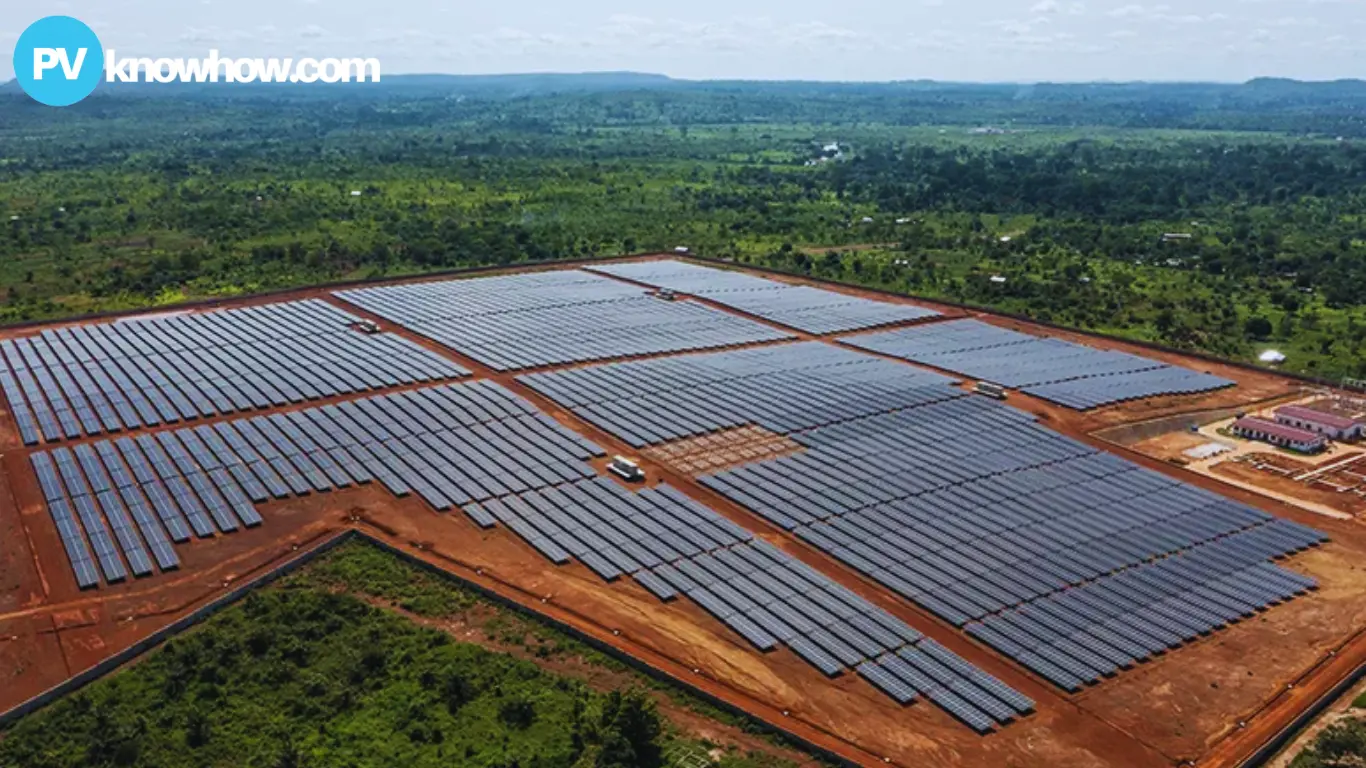Botswana has awarded a $78.3 million contract to build a 100-megawatt solar plant to a consortium led by China Harbour Engineering Co. The project which is Botswana's second utility-scale solar facility is set to be completed in the second quarter of 2026.
Botswana’s Second Utility-Scale Solar Plant
Botswana has awarded a major contract to build a 100-megawatt solar power plant to a group of Chinese companies led by China Harbour Engineering Co. The project is a key development in Botswana’s renewable energy sector, marking the country’s second utility-scale solar facility.

Image: Collected
The contract which is valued at $78.3 million includes partnerships with China Water and Electric Development Co. and local investors. The solar plant is scheduled to be commissioned in the second quarter of 2026.
President Mokgweetsi Masisi attended the signing ceremony held on Monday in Jwaneng; a diamond mining town located 200 kilometres west of the capital, Gaborone. The solar plant will contribute significantly to Botswana’s energy mix which has historically been dominated by coal. Currently, renewable energy accounts for just 2% of the country’s electricity generation.
Increasing Botswana’s Renewable Energy Capacity
Botswana has embarked on a strategic plan to increase its renewable energy capacity. Under its revised Integrated Resource Programme, Botswana aims to ramp up its renewable energy generation to 50% of total demand by 2036. This ambitious goal is part of a broader effort to diversify the country’s energy sources and reduce reliance on coal.
In March, Scatec ASA began construction of a 100-megawatt solar power plant in Botswana’s northeast. The initial 60 megawatts of this project are expected to come online by the end of this year.
The Ministry of Minerals and Energy is also working on additional renewable energy projects. It is finalizing the procurement of a 200-megawatt concentrated solar-thermal power plant and another 100-megawatt solar facility.
Other Solar Projects Under Construction
The government is collaborating with the World Bank on further energy initiatives. Two 50-megawatt battery storage systems are being developed to support the Jwaneng and Scatec projects. This collaboration also includes the World Bank’s first lending operation to support renewable energy development in Botswana.
The Botswana Renewable Energy Support and Access Accelerator (RESA) Project was approved on July 11, 2024. This project aims to transform Botswana’s energy landscape by enabling renewable solutions and improving electricity access.
Minister of Minerals and Energy Lefoko Moagi emphasized the importance of this support. He highlighted that the financing and technical assistance will help harness Botswana’s rich renewable energy resources. This will ensure a reliable, affordable, and sustainable energy future. It will also drive economic growth and enhance energy security.
World Bank’s Support
The RESA Project will finance necessary grid investments and Botswana’s first 50-megawatt utility-scale battery storage system. It is designed to integrate and manage the new wave of renewable energy projects. The World Bank is providing an $88 million loan, with additional funding from the Green Climate Fund, including a $30 million loan and a $4 million grant. The project will also benefit from a $3.5 million grant for technical assistance on solar, wind, and storage projects.
Satu Kahkonen, World Bank Country Director for Botswana, expressed the Bank’s commitment to supporting Botswana’s renewable energy expansion. The World Bank will provide both financing and technical assistance to facilitate further renewable energy projects. This support is part of the Bank’s broader commitment to promoting sustainable and inclusive growth in Botswana.
Overall, the development of the 100-megawatt solar plant by China Harbour and its partners is a significant step forward for Botswana’s renewable energy sector. The project, along with other ongoing and planned initiatives will help the country achieve its goal of 50% renewable energy by 2036. As Botswana continues to invest in renewable energy, it is setting a precedent for sustainable development in the region.
